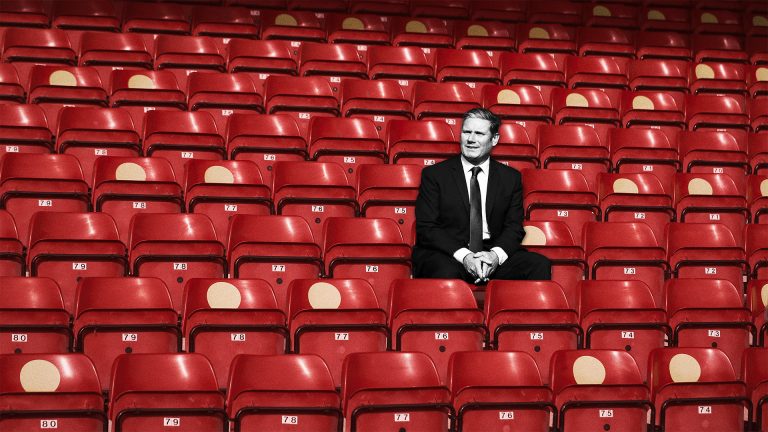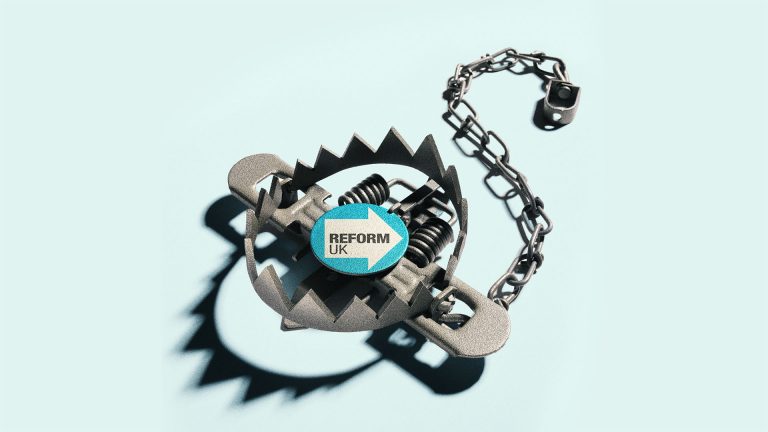The time-worn saying that Labour succeeds when it is a coalition stretching “from Hampstead to Hull” has been lazily over-used in recent years by those seeking some alliterative shorthand for the party’s political dilemmas.
During endless debates over Brexit, the failures of Jeremy Corbyn, or now the rise of Reform, we’ve repeatedly been told that Labour is “too much Hampstead and not enough Hull”; that a “woke” and “metropolitan” liberal elite in corduroy-clad corners of London ignored the cries of pain from the party’s old white working-class base over immigration and globalistion in gritty places “up north”.
The conclusion is that the party must restore traditional values like community and contribution which – according to some of those so-called “Blue Labour” thinkers – roughly translates as being mean to refugees and young people on benefits, as well as rude to anyone wearing a lanyard.
Even without trying to scrape off the layers of patronising attitudes towards different people of all backgrounds covered by such an analysis, the most obvious problem with it is that Labour cannot afford to take either Hampstead or Hull for granted. And, at the moment, the party is losing both.
So, for a change, let’s start in Hampstead. Rather obviously, this is not the place to find abandoned pitheads and collieries, but it might yet serve as the proverbial canary in the coalmine. In a little-noticed Camden Council by-election a few weeks ago, a West Hampstead seat that had been solidly Labour in every election for the past 15 years went to the Liberal Democrats. They won 1,176 votes, more than double Labour’s total of 458 and nine times that of Reform.
Labour’s candidate was Francesca Reynolds, a 26-year-old fighting her first campaign, but she really wasn’t the problem. “The by-election was always going to be very challenging because of national issues that overshadowed all the good work the council has done locally,” she says over a cup of tea. What sort of issues? “Gaza was mentioned, along with winter fuel payments and disability benefits.” How about asylum seekers crossing the Channel in small boats, a story which dominated media headlines over the summer? “Um, not hugely, from recollection,” she replies.
Some usually reliably Labour voters in Hampstead told her they might back a new party led by Jeremy Corbyn, while she thinks the Greens “might have done better” if they had put out a leaflet or two. “Maybe people are just used to us being in opposition and expectations were too high, but they were saying this wasn’t the government they thought they were getting. The goodwill wanes as things go on. I know some people are looking for more positive energy and optimism,” says Reynolds. Would she stand again or even try for parliament one day? She looks away for a second before answering, “I don’t know… The by-election was hard.”
It would, of course, be a mistake to attach much weight to the result in a single council ward even if this is one in perilous proximity to Keir Starmer’s own parliamentary constituency in north London. But a cursory glance beneath the surface headlines of national opinion polls shows Labour is losing at least twice as much support to broadly progressive parties – including the Lib Dems and the Greens as well as the SNP, Plaid Cymru and Corbyn’s independents – than it is either to Reform or the Conservatives.
For too long Labour disregarded its progressive flank, in the same way that the party was accused of neglecting the working-class “red wall” during the Tony Blair era. Instead, the focus was first on winning “hero voters” from the Tories, then retaining those it risked losing to Reform by “accommodating” their views.
Suggested Reading


It’s the values, stupid
When Starmer announced a fairly nuanced set of policy proposals on immigration in May, it was wrapped in words written for him that were deliberately controversial if inadvertently echoing those of Enoch Powell in his bitter, racist speech of half a century ago. Although the prime minister later went out of his way to express deep regret for warning that Britain risked becoming an “island of strangers”, it was too late to prevent damage. An academic study shows the speech had zero impact on Reform but “resulted in a 3.9 percentage-point haemorrhage in support from Labour’s own former voters”.
No one doubts there has been a recent change of strategy, although they may differ on how much. At Labour’s conference, where Starmer had been struggling with a sore throat, he finally found his real voice with a passionate denunciation of Nigel Farage’s “racist” plan to round up and deport hundreds of thousands of immigrants who had been living and working in this country for years. It was a speech he needed, and wanted, to make, promising no less than “a battle for the soul of our country” – what he called the “tolerant, decent, respectful Britain that I know” – against the terrifying prospect of extremist government that would “cross a moral line”.
In doing so, the prime minister took a big decision that had been resisted by some of those advising him. They were concerned that portraying Reform as a new danger validates Farage as the insurgent leader many of his supporters crave as Labour turns away from them and appeals to progressive voters to unite behind it once more. And, in answering one strategic question, they know new ones will now pop up.
The best proof of the divisive danger Farage represents for Britain is the MAGA movement across the Atlantic on which Reform has modelled itself. Yet the prime minister, for reasons of securing both vital national interests and liberal democratic values in Ukraine, cannot risk antagonising Donald Trump just yet. Instead, we should expect to hear a lot over the weeks to come about Reform’s links to Vladimir Putin, including the bribes taken by its former leader in Wales to peddle Kremlin propaganda.
The other obvious evidence of the harm Farage would cause is the UK’s departure from the European Union, which is all Farage really has to show for his 25-year-long war against the progressive “establishment”. While the government is still averse to reversing Brexit’s most damaging aspects, Starmer’s speech had notable references to the “lies on the side of that bus” and aides promise there is “more to come on that”.
But, by dusting down language from the referendum fought almost a decade ago, they are demonstrating how they haven’t really developed arguments or language to appeal to growing Remainer sentiment in the nine years since. Almost all its polling and focus group work has been about the people now supporting Reform, not those drifting off to the left. And it’s not entirely clear how far Starmer’s government will tilt in their direction.
His advisers are adamant they must neutralise concerns about small boat crossings and immigration. And, if it had not been for Farage’s extreme policies about rescinding people’s right to remain or his plan to leave the European Convention on Human Rights, the government’s own proposal to reform both would have caused a much bigger row with the Labour left at the conference last week.
Suggested Reading


Can Starmer avoid the Farage trap?
Similarly, for all that the government has tried to claw back support from those horrified by the deadly destruction of Gaza by recognising Palestinian statehood, most ministers still seem hard-wired to scorn those on the left who object to continued links with Benjamin Netanyahu’s regime, ask why the UK is still exporting arms to Israel and training some of its military, or wonder why they can’t use the word “genocide”.
Indeed, there was still a lot of “Blue Labour” in Starmer’s speech last week. His description of how the country had become a miserable place for working-class people during the era of liberal economic orthodoxy jarred with his later insistence that Britain’s “beautiful” diversity and tolerance meant it wasn’t “broken” at all.
At the same time Downing Street emphasises that Starmer wants to appeal not only to those on the left of the government but also to a broad mass of the country, appalled by the prospect of Reform which include business and traditional Conservatives abandoned by Kemi Badenoch wandering off into populist marshlands.
Nor do Starmer’s advisers believe a second term can be won with what one adviser describes as the “kind of kumbaya campaign” fought by Kamala Harris in America last year which asked voters to save liberal democracy, women’s reproductive rights and diversity.
Largely overlooked in the coverage of the prime minister’s speech was a section focusing on the government’s economic and social offer. This featured, alongside the pre-budget insistence on fiscal discipline, a more uplifting story of long-term investment in new homes and clean energy, industrial planning, harnessing AI to transform public services, pride in place initiatives, and spreading opportunity across the country through a new emphasis on training apprentices.
This is why it’s worth ending by looking briefly at Hull. For all its red wall caricature, this is a famously contrarian city that reflects the confused impulses of Britain’s voters with Labour MPs, a Lib Dem council and a Reform mayor in the muscular form of Luke Campbell, a former professional boxer.
He has recently recognised there is a lot of investment and opportunity tied up in making wind turbines and harvesting electricity off the east coast. “If that’s creating jobs in any sector I’m all for it,” said Campbell recently. “Who doesn’t like cleaner air and green energy?”
Well, his own party leader for one, because Farage regards all things renewable with disdain. It may just be a start but if Hull and Hampstead can come together on more issues like this then, as the saying goes, perhaps Labour can still succeed.
Keir Starmer: The Biography by Tom Baldwin is published in paperback by William Collins




